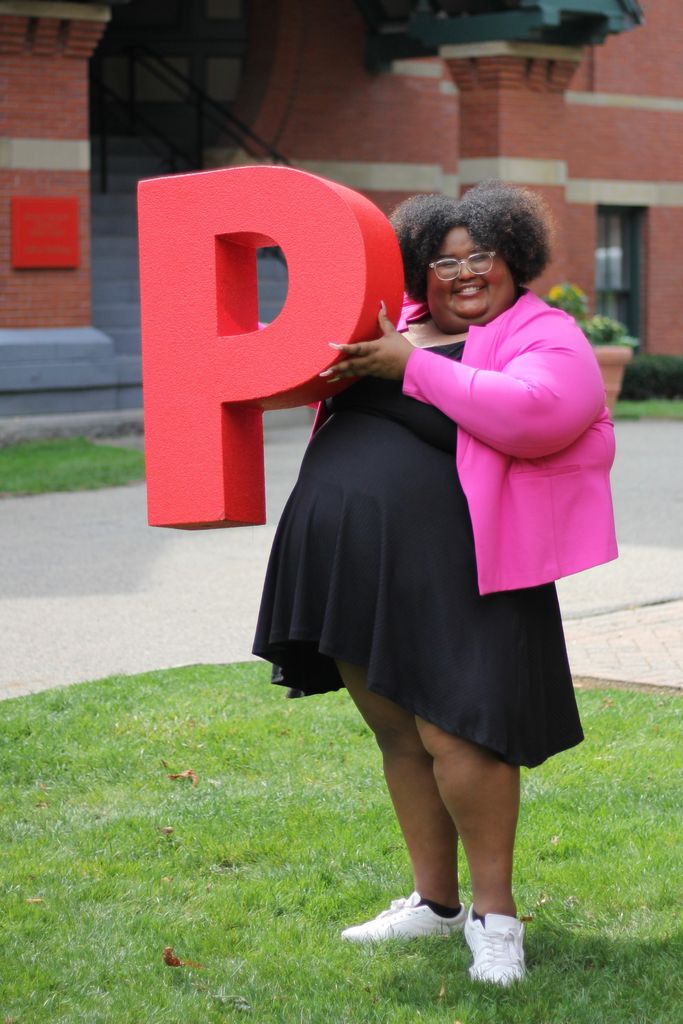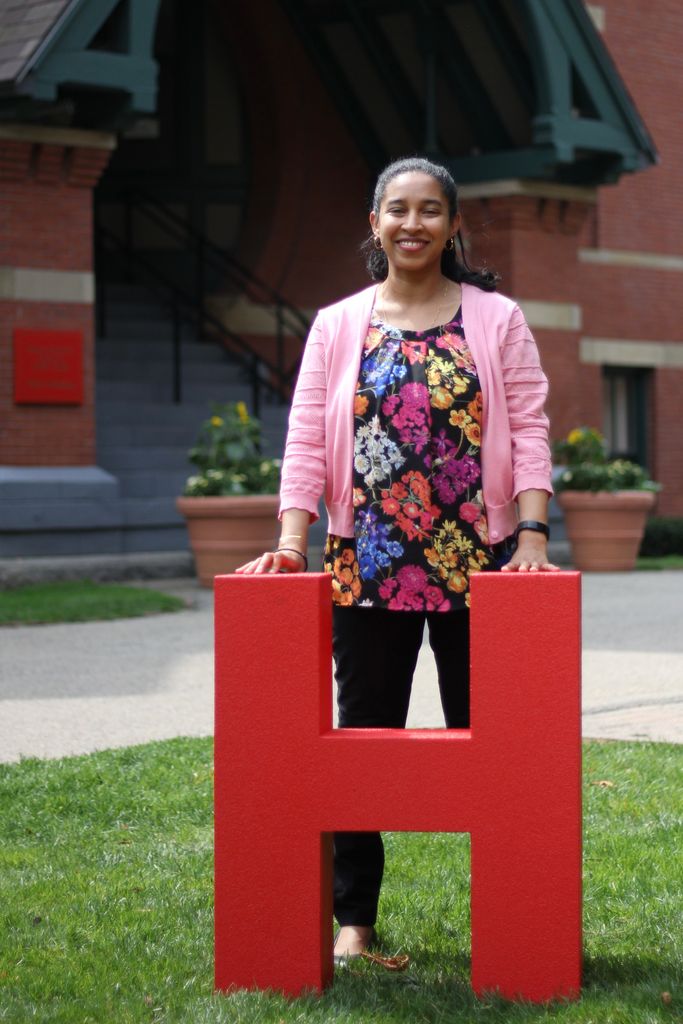BUSPH Beyond the Classroom: A Q&A with Graduate Student Life.

From Left: Ashley Leonard, Mary Murphy-Phillips, Tenbit Mitiku, Rea Shqepa, and Robyn Volcy-Lee
BUSPH Beyond the Classroom: A Q&A with Graduate Student Life
Ahead of welcoming students and faculty to campus this fall, GSL answers frequently asked questions about their resources and opportunities.
The Office of Graduate Student Life (GSL) strives to ensure that students get the most out of their graduate experience at the School of Public Health. Located on the second floor of the Talbot Building’s East Wing, GSL provides on-campus students enrichment in a variety of areas including academic success, wellbeing, leadership, and community engagement. The team includes Mary Murphy-Phillips, assistant dean of students; Ashley Leonard, assistant director for graduate student life; Rea Shqepa, assistant director for student success; Robyn Volcy-Lee, wellness & communications manager; and Tenbit Mitiku, operations coordinator. Ahead of welcoming students and faculty to campus this fall, GSL answers frequently asked questions about their resources and opportunities.
Q&A
with Graduate Student Life
How does GSL foster community at SPH?

Murphy-Phillips: GSL fosters a sense of belonging and purpose at SPH by offering opportunities for students to build connections with peers, network with departments, and organize their own events for the SPH community to engage in. Whether you’re looking to attend a social event on campus or volunteer in the Boston area, GSL is here to help you make it happen. Our 16 Student Organizations, focused on shared identities, common interests, and public health issues, enable students to unite in meaningful ways and enlighten others. We also support community engagement with our First Gen Mentoring Program, which connects First Gen students with a First Gen faculty or staff mentor. Mentors provide students guidance for navigating graduate studies and accessing resources to reach their full potential. GSL is a hub for student involvement and collaboration where members of the SPH community can come together as one.
What types of social and cultural events does GSL organize?

Leonard: Every semester, GSL holds a series of signature events for SPH students to take a break from their studies and socialize with one another. Oftentimes, we travel beyond the campus for these socials to immerse our students in the Boston community. Past events have included Red Sox games, Duck Boat tours, as well as a fall favorite: apple picking north of the city. The International Students Organization Cultural Show is a beautiful celebration of diversity held each fall, while our Variety Show each spring serves as a testament to SPH students’ brilliant minds and also to their immense talent in all forms of the arts. Our upcoming signature events can be found in Student Weekly, our email newsletter sent every Monday to the SPH community.
How does GSL help students successfully navigate the academic challenges of graduate school?

Shqepa: We offer a variety of academic support resources to promote student success in higher education and beyond. Recognizing the unique demands of public health writing, we started our Public Health Writing Program in 2010. The program connects students with Peer Writing Coaches, who provide individualized support for class writing assignments throughout all stages of the writing process. The program was the first of its kind in the country and now serves as a model for other universities. We also provide a Core Course Tutoring Program for MPH students who are struggling to meet the minimum grade required to pass PH717 Quantitative Methods for Public Health and PH719 Health Systems, Law, and Policy.
GSL closely collaborates with various academic departments and schools within Boston University to provide workshops and activities to students that help them develop professional and interpersonal skills. With all our academic support resources, our goal is not only to help our students achieve their professional dreams, but also build a community where the students are empowered to find their unique voices, advocate for themselves and others, and convey their ideas effectively, with the passion and courage that is so characteristic of them.
What resources are in place to help students manage stress and maintain overall wellbeing?

Volcy-Lee: Students have access to a variety of wellbeing resources at BU and SPH. At SPH, we offer holistic wellness programming aimed at addressing the different emotional, mental, and physical dimensions of wellness. Students have the opportunity to come together to flex their social muscles while also working on their personal wellness. We host activities, workshops, and events that give our students the option to take a break from their academics and focus on that often neglected piece—themselves. Our activities are often designed to awaken the inner child. While our goal is to foster a sense of community, we also recognize that wellness is deeply personal and because of this, students are also encouraged to meet with me individually. In these meetings, we discuss what wellness looks like for them and come up with a plan to better support their holistic wellbeing.
In addition, at BU, students have access to a variety of other behavioral medicine resources, including a Graduate Student Support group. Most importantly, don’t forget that 24/7 crisis & sexual assault counseling services are only a call away—look at the back of your BU ID and call 617-353-3569. We care about you and are here for you!
How does GSL collaborate with other departments or organizations on campus to enhance the graduate student experience?

Mitiku: GSL works in close collaboration with SPH’s Career and Practicum Office and BU’s Arts Initiative, Student Wellbeing, Disability and Access Services, Newbury Center, and many others to holistically support the graduate student experience. As we have neighboring offices on the 2nd East floor of Talbot, GSL often hosts events with the Career and Practicum Office to provide networking opportunities for students. Through our partnership with the BU Arts Initiative, students can dive into their creative outlets with hands-on activities that foster artistic expression and interpersonal connection. Together with the Newbury Center, GSL assists in bringing events to support FirstGen students to the Medical Campus. One of our strongest partnerships is in working with the Office of Disability and Access Services to serve as a liaison for our SPH students with disabilities in providing them the academic accommodations they deserve to ensure their success. This past year, we were excited to have BU Student Wellbeing provide our students with workshops on mental health, leadership strategies, and self-compassion.
How does GSL address the unique needs and concerns of international graduate students? Are there specific resources or programs designed to support their transition and integration into the university community?
Shqepa: With our International Students Success Program (ISSP), started Fall 2022, GSL supports international students as they transition and culturally adjust to studying in a new country and environment here at the School of Public Health, Boston University, and in the city of Boston. ISSP hosts a series of events and activities both on campus and in the greater Boston area for students to engage with one another and discover things to do in the city. As part of the program, students are guided by ISSP Coaches who are upper-level international students. ISSP Coaches offer support and advocacy for students to achieve their academic goals and thrive in their new cultural surroundings. By focusing on minimizing isolation and loneliness through activities and individualized support, we are able to holistically support the mental health and wellbeing of our international students. Ultimately, this has led to both academic excellence and strong international student and alumni networks.
How does GSL help faculty support their students and what opportunities exist for faculty to get involved in GSL activities?
Murphy-Phillips: GSL believes in a true partnership with SPH faculty. An open line of communication between faculty and our office is critical to ensure that students are supported when their personal lives divert their attention from their academics. I work together with faculty to make plans for students who need additional support.
Each month, GSL sends faculty a calendar of upcoming GSL and SPH events to share with their students. We also invite all faculty to attend our Social Justice Talking Circles held on a regular basis as an opportunity to engage in these conversation topics alongside students. In addition, our Student Senate hosts Faculty Coffee Socials for students to informally chat with faculty from various departments. These coffee socials offer students a chance to network and get to know faculty beyond the classroom.
How does GSL ensure accessibility and inclusivity on campus and in its services?
Volcy-Lee: Everything done at GSL is done with the intention that all students are able to participate. We want every student to feel as though they are a member of the SPH community and in order to do this, we look at our events and programming with an intersectional lens. One of the best things about the GSL team is that we come from all over. Some of us were international students, some were first-generation students. We ensure accessibility and inclusivity because we want our students to experience graduate school in the same great ways that we did. We often check with each other on the team to make sure that we’re doing things in the way we would want them done for us. Our office also serves as a liaison for students with academic accommodations, supporting students through the process of applying for services at the university and utilizing these resources in the classroom. We feel this intermediary role is important to ensure that our students with disabilities have equitable access to learn in the ways that work best for them. On campus, we foster inclusivity in a lot of different ways. Through SPH Reads and the Social Justice Talking Circle, we make room for difficult conversations and opposing viewpoints. This is done in a way that places an emphasis on a culture of respect.
How can students get involved and contribute to GSL events?
Leonard: Students can visit the GSL website to learn more about our programming and academic resources. We also host Student Organization Fairs during Student Orientation at the start of each semester as a way for students to meet representatives and learn how to become involved. The best way to keep up to date with our events is by viewing Student Weekly which is emailed to student’s BU accounts every Monday. Please reach out to us at sphgsl@bu.edu with any questions!
Wondering what resources and opportunities are available to Online MPH Students? Stay tuned for a future Q&A with online degree program staff.
